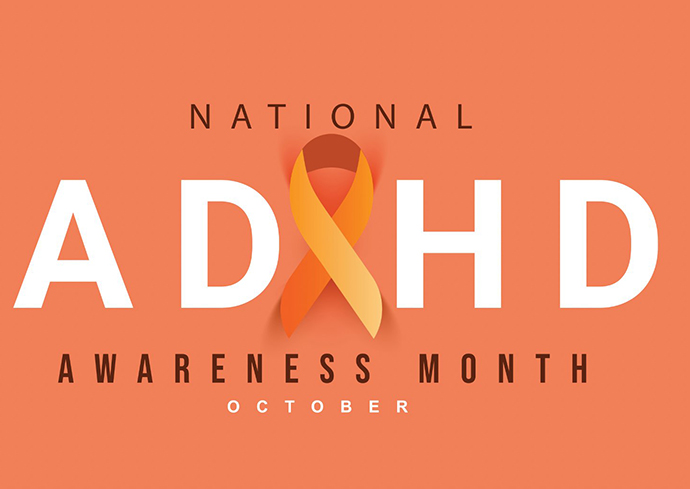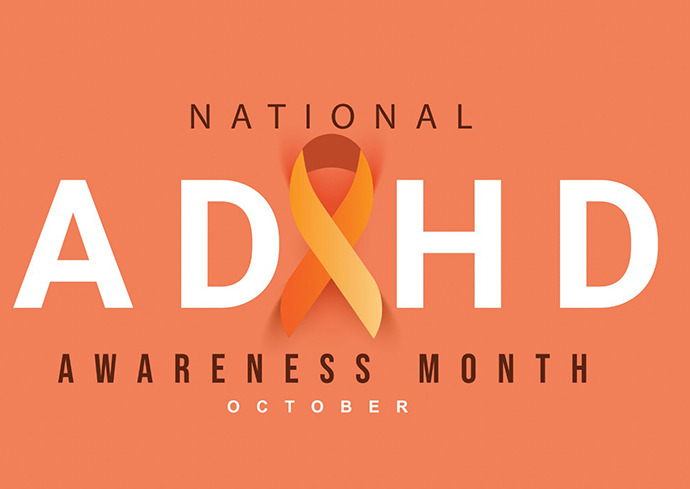What’s Driving the Rise in ADHD Diagnosis Among Children and Adults?

Attention-deficit/hyperactivity disorder (ADHD) is the most commonly diagnosed behavioral disorder in children, and the numbers are only expected to rise. The CDC reported that in 2022, over 7 million (11.4%) U.S. children aged 3–17 years were diagnosed with ADHD, an increase of 1 million compared to 2016. The elevated numbers aren’t limited to children. According to a 2021 report in the Journal of Managed Care & Specialty Pharmacy, 8.7 million adults in the U.S. have ADHD.

ADHD is a chronic condition characterized by difficulty focusing, restlessness and impulsive behavior. If untreated, ADHD can have severe negative consequences on physical and mental health throughout a person’s life, including low self-esteem, chronic stress, fatigue and higher risk of substance abuse. That’s why diagnosis during childhood and early intervention are crucial for helping children reach their potential and avoid the potential life-long challenges associated with the disorder. To educate the public with reliable information, reduce stigma and highlight the importance of ADHD diagnosis and treatment, several advocacy groups joined forces to designate October as ADHD Awareness Month.
The College of Arts and Sciences sat down with Kevin Antshel, professor of psychology and principal investigator for Syracuse University’s ADHD Lifespan, Treatment and Education Research program, to discuss the rise in ADHD diagnosis among children and adults, the signs to look out for, and the importance of treatment.
Did the pandemic play a role in the sharp rise in ADHD diagnosis in children from 2016 to 2022, or are other factors at play?
The pandemic played a role. Increased mental health concerns (especially stress, anxiety and depression) were reported by youth, parents and teachers. These mental health concerns led to more diagnostic evaluations which, in turn, led to increased ADHD diagnoses. (Without an evaluation, there is no diagnosis.) In addition, the pandemic was associated with remote learning, frequently observed by parents. Since 2020, our own clinic has seen an increase in evaluation requests by parents who cite their observations of their child during remote learning as the precipitating factor. Thus, in my opinion, the pandemic played a role in the increased ADHD diagnoses.
At the same time, it is not only the pandemic which likely explains the increase in ADHD diagnoses in 2022. Other factors, including better awareness and recognition of ADHD, especially in girls, likely are a contributor to the increased ADHD diagnoses.
What are some of the commons signs that a child might have ADHD?
The core symptoms of ADHD are inattention, hyperactivity and impulsivity. Most children demonstrate some of these symptoms occasionally. However, children with ADHD display these symptoms often and across multiple settings (e.g., home, school, sports practice, etc.). In addition, for a child to meet criteria for ADHD, these core symptoms of ADHD must negatively impact the child’s functioning. Thus, a child’s functioning, not simply their symptoms, should be the primary variable driving any evaluation considerations.
Why is it important to diagnose and treat ADHD in children?
In children, untreated moderate to severe ADHD is associated with academic, social and emotional difficulties that can interfere with development. Mild ADHD, on the other hand, does not necessarily need to be treated. Instead, a cautious, wait-and-see approach that includes environmental adjustments (e.g., more structure, adjusting instruction to meet their learning style) and other supports that we know are good for children in general (e.g., physical activity, adequate sleep, reduction in screen time, etc.) is often recommended.
Has ADHD diagnosis in adults followed a similar trend?
The prevalence of ADHD in adults is also increasing. This is due to several factors including the pandemic impacts (like children, many adults are diagnosed when they seek evaluations for stress, anxiety and depression concerns), increased awareness and recognition of ADHD extending into adulthood, later diagnoses of ADHD in women (who generally are less hyperactive) as well as the increasing pace of modern life which is frequently replete with distractions.
For adults who have never been diagnosed with ADHD, what are some signs and symptoms that might indicate they should consider being evaluated?
I recommend that functioning, not symptoms, drive any evaluation considerations. In other words, if an adult is restless and has difficulty following through, yet is functioning well, I do not see a need for any evaluation. However, if these symptoms are interfering with their perceived functioning (and/or others around them have indicated as such), then an evaluation might be worthwhile to consider.
Will ADHD diagnosis rates continue to climb in our country?
I believe that ADHD diagnosis rates will continue to increase in the United States. Increased awareness (driven in part by social media), better societal acceptance of neurodiversity and lower resulting ADHD stigma, as well as the fast pace of 21st century life might all contribute to this increase. I also worry that this increased identification will amplify some of the existing inequities that we have currently in ADHD diagnosis (lower rates in historically marginalized populations).
Should people be concerned about the rise in diagnoses (could societal factors cause this?), or is the increase a positive sign because it means more people are receiving the treatment they need?
I think there are reasons to be both optimistic and concerned about the increases in ADHD diagnoses. On the optimistic side, this rise might signal better ADHD awareness and access to ADHD services. The rise may also mean that there is reduced stigma towards ADHD as a mental health condition. Conversely, the increase in ADHD diagnoses might also communicate overdiagnosis due to medicalization of everyday symptoms is occurring – who has not experienced moments of distractibility and a consequent loss of productivity? In addition, the increase in ADHD diagnoses might also mean that the increasing pace of modern life is establishing unrealistic attentional expectations, for which larger and larger segments of our society are unable to attain.



